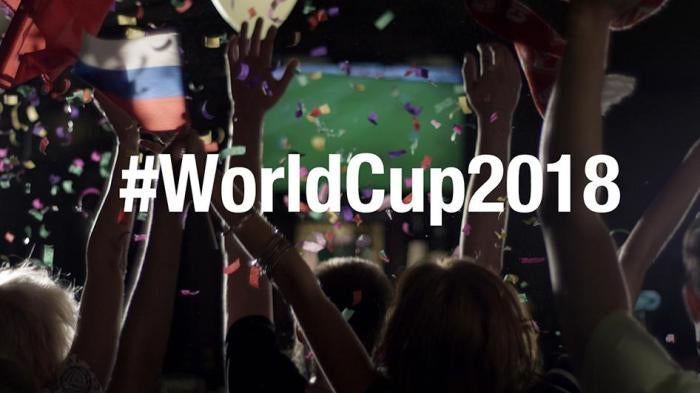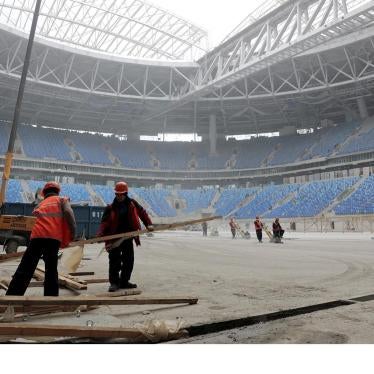
World Cup 2018
Russia will host the 2018 FIFA World Cup from June 14 to July 15. It’s a global celebration of sport. As millions attend or watch the tournament, it’s important to look beyond the state-of-the-art stadiums to the context in which the World Cup is taking place. Workers who built the stadiums were exploited, 21 died from work-related fatalities. Russian authorities inappropriately used a security decree for FIFA events to crackdown on peaceful protesters. Chechnya, arguably Russia’s most repressive region, was selected as the Egyptian team’s training base. You can read and watch about these issues here. The World Cup is also taking place against the backdrop of 18 years of a steadily growing human rights crackdown in Russia. Key concerns include the dismantling of checks and balances on government power, sweeping internet restrictions, rising government interference with privacy on line, and attacks against journalists, smear campaigns against human rights defenders, and pervasive discrimination and violence against LGBT people. Read all about the impact of these issues here. Just over a year ago, FIFA committed to a new Human Rights Policy. Human Rights Watch assesses the steps FIFA has taken and what more needs to be done. We also look at Russia’s role as Syria’s patron and whether under the global spotlight of the World Cup, Russia might act to end atrocities against civilians.
-
Middle East/North Africa
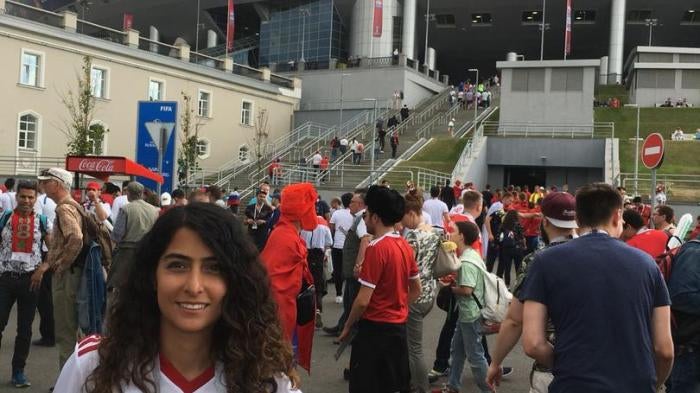
News
-
June 14, 2018
What Lies Beneath Russia's World Cup Glam and Glitter?
Russia today is at its most repressive since the Soviet era.
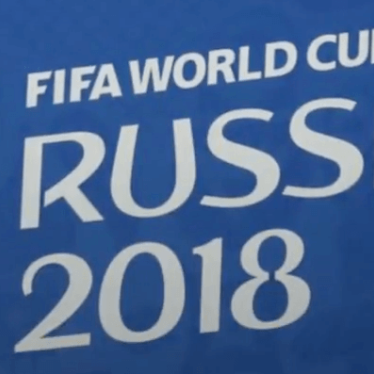
-
June 14, 2018
FIFA 2018 Kicks Off, While Dozens Remain Behind Bars
European Parliament Calls On Russia to Free Oleg Sentsov and Oyub Titiev
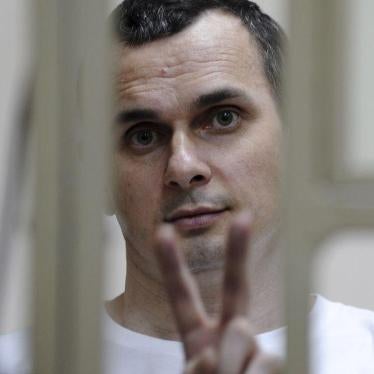
-
June 12, 2018
FIFA: 2026 World Cup Bids Test Reforms
For First Time, Candidates Had To Assess Rights Risks
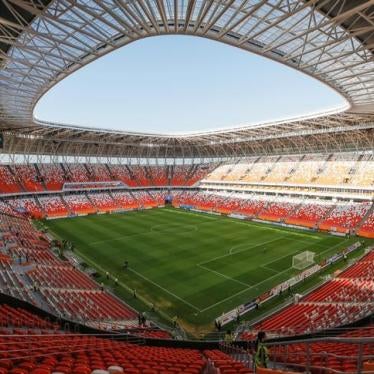
-

-
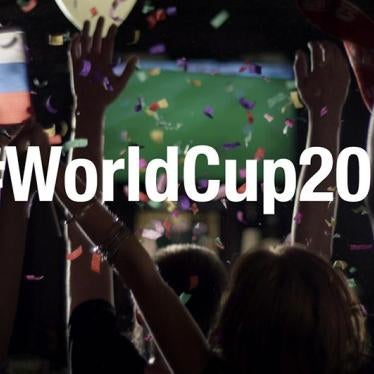
-

-
May 29, 2018
LGBT Rights at the World Cup
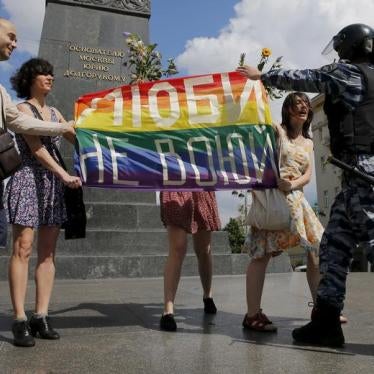
-
May 24, 2018
Russia Should Free Oleg Sentsov Before FIFA World Cup
Pressure Mounts to Release Political Prisoners Before Sporting Extravaganza

-
-
May 21, 2018
World Cup No Time to Obscure Plight of Syrians
World Leaders Should Sit Out Opening Ceremony Unless Syria Abuses are Addressed

